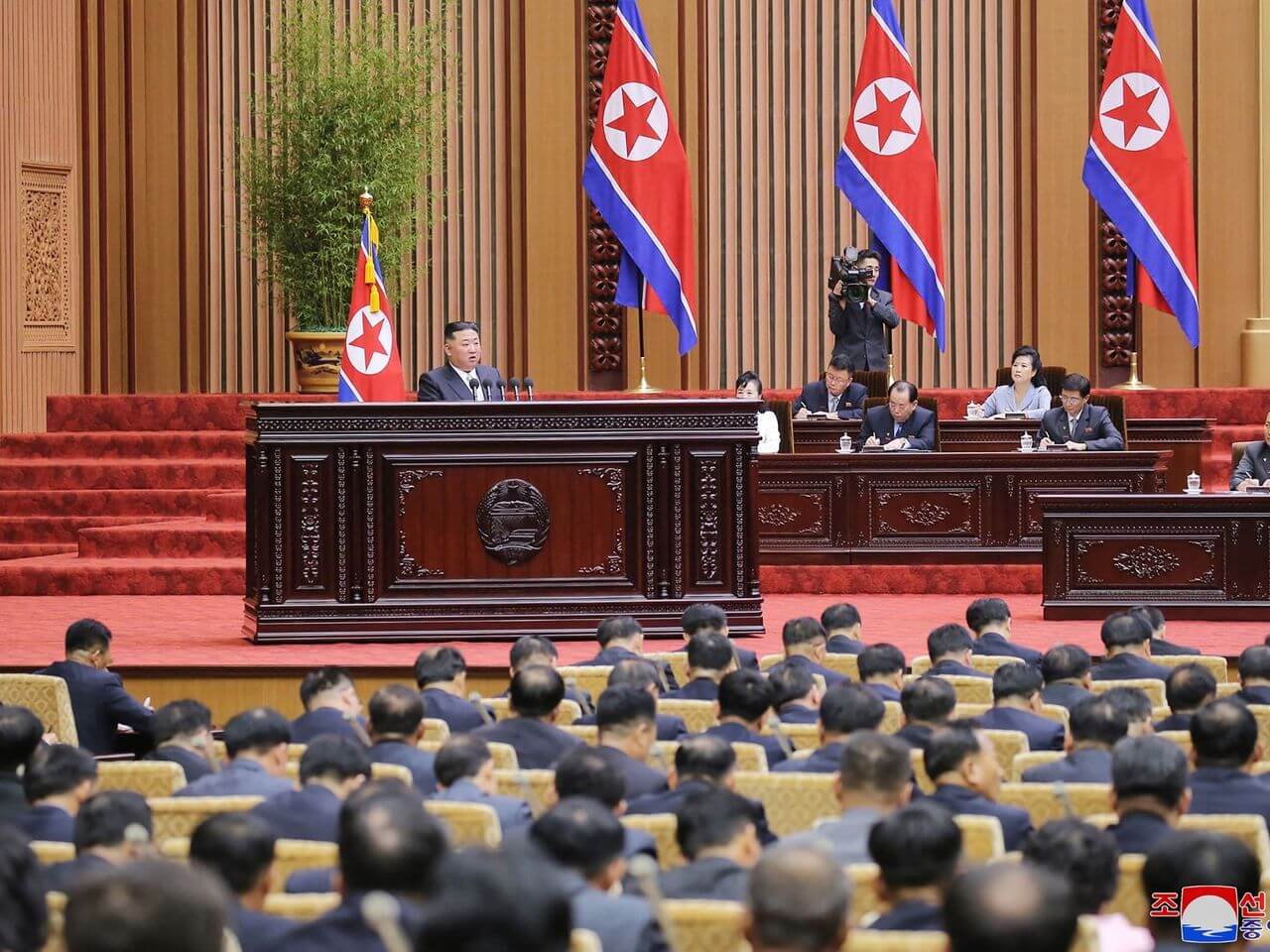North Korea passed a law on Friday that affirms its right to use preemptive nuclear strikes to defend itself, with Supreme Leader Kim Jong-Un declaring that the law makes the country’s nuclear status “irreversible.”
In a press release on Friday, the state-owned Korean Central News Agency (KCNA) announced that the country had formulated its state policy on nuclear forces on Thursday, as part of which, Pyongyang’s nuclear forces will be the “main force of national defence which safeguards the sovereignty and territorial integrity of the country…from outside military threat, aggression and attack.”
The law states that North Korea is “opposed to all forms of war, including nuclear war” but that it remains committed to defending its “sovereignty, territorial integrity, and fundamental interests.” To this end, it underscores the need to establish a “reliable, effective, and matured nuclear deterrence” against all “outside military threats, aggression, and attacks.”
North Korea's new law related to nuclear weapons, via KCNA: pic.twitter.com/kXK50PvOWc
— William Gallo (@GalloVOA) September 9, 2022
The law clarifies that when the command and control system is “in danger,” Pyongyang will “immediately” launch a nuclear strike, but stressed that this will be the “last means in order to cope with outside aggression.” It highlighted that it will “neither threaten non-nuclear states with its nuclear weapons nor use nuclear weapons against them unless they join aggression or attack against the DPRK in collusion with other nuclear states.
In a release expounding on the details of the law, state-owned news outlet Voice of Korea said that North Korea considers it its “basic mission to deter a war” by forcing “hostile forces” by making them understand that “military confrontation” with Pyongyang “will lead to their ruin” as well as “a decisive victory” for the North. “The nuclear strike shall be made automatically and immediately to annihilate the hostile forces including the origin of provocation,” the release stated.
The brief noted that Pyongyang would be forced to use nuclear weapons even in non-nuclear attacks against state leadership and “strategic objects.”
"The utmost significance of legislating nuclear weapons policy is to draw an irretrievable line so that there can be no bargaining over our nuclear weapons," Kim Jong Un said
— Josh Smith (@joshjonsmith) September 8, 2022
Moreover, it revealed that North Korea will continue to “update and strengthen” both the quality and quantity of its nuclear arsenal to help “cope with” any change in “international nuclear arms posture.” It will also regularly update the use of its nuclear weapons strategy “so that the nuclear force can reliably discharge its mission.”
As a self-proclaimed “responsible nuclear state,” Pyongyang pledged to never “deploy its nuclear weapons in the territory of other countries or share them nor transfer the technology and equipment.” It also pledged to establish “a thorough and safe nuclear weapon storage and management system” and “take full measures to prevent the leakage of nuclear materials.”
In this regard, Supreme Leader Kim Jong-un said during a parliamentary speech on Thursday that the law enshrined the country’s status as an “irreversible” nuclear weapons state. “The utmost significance of legislating nuclear weapons policy is to draw an irretrievable line so that there can be no bargaining over our nuclear weapons,” Kim reportedly said.
He also stressed that Pyongyang will never abandon nuclear weapons, as it needs them to counter the United States (US), and that even another 100 years of sanctions would not bring the country to surrender the weapons. “Let them sanction us for 100 days, 1,000 days, 10 years or 100 years…We will never give up our rights to self-defense that preserves our country’s existence and the safety of our people just to temporarily ease the difficulties we are experiencing now,” Kim asserted.
#NorthKorea has officially declared itself a nuclear weapon state. pic.twitter.com/MzhqkMKsW3
— NEXTA (@nexta_tv) September 9, 2022
He further accused the US of “weakening” North Korea by “forcing” [it] to “surrender” its “self-defense through giving up [its] nukes,” which could “collapse [its] government at any time.”
In response to the development, White House press secretary Karine Jean-Pierre said on the same day that Washington had “made clear” that it has “no hostile intent toward the DPRK.” “And as we have said—and North Korean officials, including Kim Jong Un, have publicly noted—we continue to seek diplomacy and are prepared to meet without preconditions. The DPRK continues to not respond. And we’ve been very clear and upfront about that,” she remarked.
Past efforts by the international community to negotiate with North Korea to give up its nuclear weapons programme have failed. In August, when South Korean President Yoon Suk-yeol offered to rebuild the North Korea economy in exchange for the surrender of its nuclear programme, Kim Yo-jong, the sister of Kim Jong-un, said the country would never “barter economic cooperation for [its] honour.”
North Korea has already launched over 30 missiles this year, including six Intercontinental Ballistic Missiles (ICBMs). In addition, it also tested two cruise missiles last month. Cruise missiles are not part of the United Nations’ test bans on the country.

